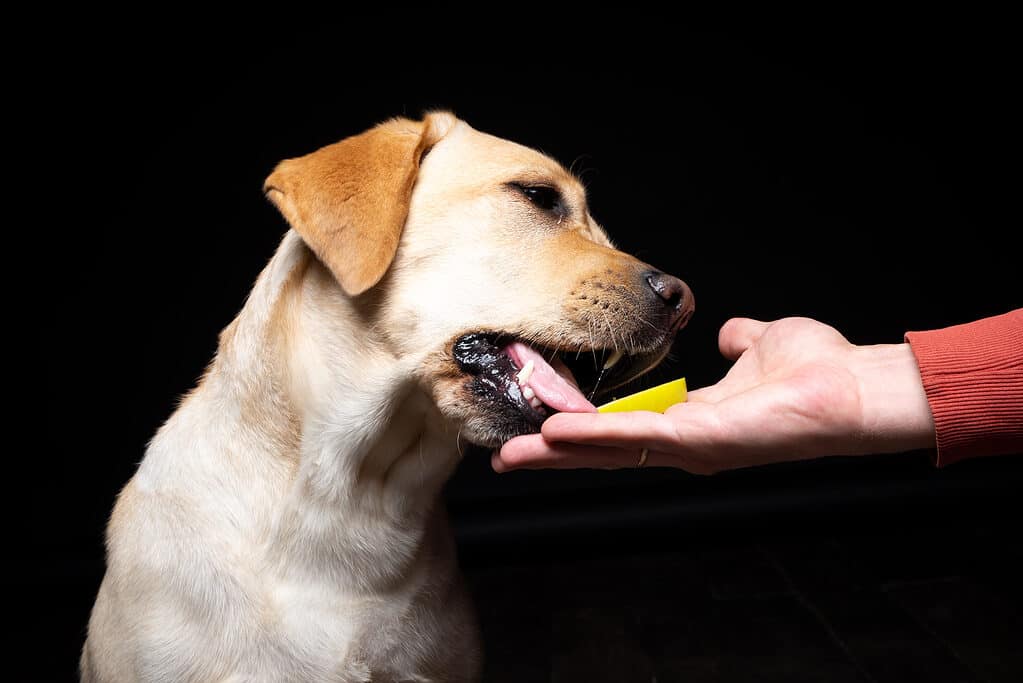Labradors are known as the ultimate companions for humans, always eager to join in on the fun with their energetic and affectionate nature. They are friendly, loyal, and thrive on being part of an active family. To keep them happy, Labradors require a spacious, secure yard and plenty of exercise. Typically, these lovable pups have a lifespan of around 10-12 years, similar to other large breeds. However, some may have shorter lives, while others may exceed this expectancy. In fact, the oldest Labrador on record lived a remarkable 27 years. Throughout this article, we will explore the world of Labradors, including their lifespan and the stages they experience from birth to old age.

Labrador Retrievers are known for being affectionate and friendly family pets. On average, they have a lifespan of 10-12 years, but some have lived much longer. One remarkable Labrador, named Adjutant, lived to be an impressive 27 years old. It’s important to provide proper care and monitoring of your Labrador’s diet to ensure they stay healthy and maintain a balanced weight. Overweight dogs have a shorter lifespan, so it’s crucial to prevent overeating. When getting a Labrador from a breeder, always request the dog’s veterinary records and ensure they were bred responsibly and ethically to avoid potential health complications. If you’re considering adding a Labrador to your family, don’t forget to check out local animal shelters where you may find Labradors and Labrador mixes in need of loving homes. Labrador puppies are adorable, but it’s essential to be aware of their development stages.

Labrador retriever puppies are born blind and deaf, relying solely on their mothers for warmth and nourishment. However, by the time they reach two weeks of age, these little furballs begin to see, hear, and explore their surroundings on their own. This marks the start of their playful interactions with their environment, mother, and littermates. As the puppies reach the four-week mark, a crucial socialization period begins. It is important for them to start getting accustomed to being gently handled by humans while still spending most of their time with their mother and siblings. This period helps them learn essential skills and behaviors that will shape them into well-rounded adult dogs. It is crucial to wait until Labrador puppies are at least eight weeks old before bringing them into your home. During this time, they continue to learn important lessons from their mother and siblings, such as how to control their biting and how to interact with other dogs. Puppyhood is a magical time filled with growth, learning, and discovery for these adorable Labradors.

A young Labrador retriever puppy typically goes to their new home around 8-12 weeks of age. This can be an exciting but also overwhelming time for them! It’s important to go at the puppy’s pace, avoiding crowding and rushing them into new situations before they’re ready. Start basic training around three months old, keeping sessions short and enjoyable using positive reinforcement techniques. When necessary, discipline your puppy by redirecting their behavior or simply walking away and ignoring them for a few minutes. This helps them understand that misbehavior doesn’t get them any attention, whether negative or positive. Keep in mind that puppyhood lasts until your dog is around one to two years old, when they are fully grown and matured.

As your Labrador Retriever reaches the age of one to two years, they are considered fully grown adults. Although they stop growing taller at one year old, they may continue to develop more muscle mass until their second birthday. This stage of their life is crucial for maintaining their health and well-being. Regular exercise is essential for keeping them in shape, which includes daily walks, play sessions, and opportunities to run and play outside. As your loyal companion enters their senior years, it’s important to continue providing them with the care and attention they need to stay happy and healthy.

The age at which a Labrador is considered a senior dog is around seven years old. While some may remain healthy and active for several more years, many may start to experience age-related health issues such as hearing difficulties, arthritis, and tumors. It is common for Labradors over the age of eight to develop arthritis, with about 80% of dogs in this age group being at risk. Although they can still enjoy a good quality of life, activities like running, jumping, and climbing stairs may become more challenging for them. Labradors are also predisposed to developing lumps and bumps, which can vary in severity from harmless fatty growths to potentially cancerous masses. Regular veterinary check-ups are crucial for detecting and managing these issues early on to keep the senior Labrador as healthy as possible. Tumors, particularly skin tumors, are a prevalent cause of death in Labradors, with females being more susceptible. While not all tumors are malignant, it is essential to have them evaluated and treated by a veterinarian to determine the best course of action. Arthritis is another common ailment that affects aging Labradors, impacting their mobility and quality of life. Various treatment options, including supplements and pain medication, can help manage the condition and improve their comfort. Heart disease, kidney failure, and other health issues also pose risks to Labradors in their senior years. Being aware of the symptoms and seeking veterinary care promptly can help prolong their lifespan and quality of life. Compared to other dog breeds, the lifespan of Labradors can vary, with proper care and regular check-ups playing a significant role in ensuring they live to their fullest potential.

Adorable Labrador Retrievers, the beloved pets of many, can be seen lounging on the lush green grass of a summer park. In the animal kingdom, it’s often observed that smaller animals like guinea pigs have shorter lifespans compared to larger animals like whales. However, this pattern is not always consistent and can vary when looking at individual species, like dogs. Scientists are still working to fully understand the reasons behind these differences, but progress is being made. One interesting aspect is that large dogs tend to grow faster than small dogs or wolves. It’s possible that breeding for larger dogs has contributed to their shorter lifespans. Labradors, for example, typically have a lifespan shorter than smaller breeds, but they still live as long as other popular large breeds such as Golden Retrievers, Siberian Huskies, American Bulldogs, and Boxers, which live around 10 to 14 years. To brighten your day, here are five entertaining facts about Labrador Retrievers!

The Labrador Retriever holds the title of being the national dog of Newfoundland and Canada’s official animal, making it a well-loved breed in both regions. This lovable canine is among the most popular breeds around the globe, with an array of fascinating characteristics that set it apart. Here are five charming facts about the Labrador Retriever: – This delightful breed is the top dog choice in the United States. – Originally, Labrador Retrievers were specially bred to support fishermen in Newfoundland, Canada. – Their exceptional swimming abilities and love for water make them excellent playmates in aquatic settings. – Labs are cherished for their amicable and sociable nature, making them ideal companions for families. – With a variety of black, chocolate, and yellow coat colors, Labs showcase a visually striking appearance. These fun facts highlight just a few of the many reasons why Labrador Retrievers are adored by dog lovers worldwide.




